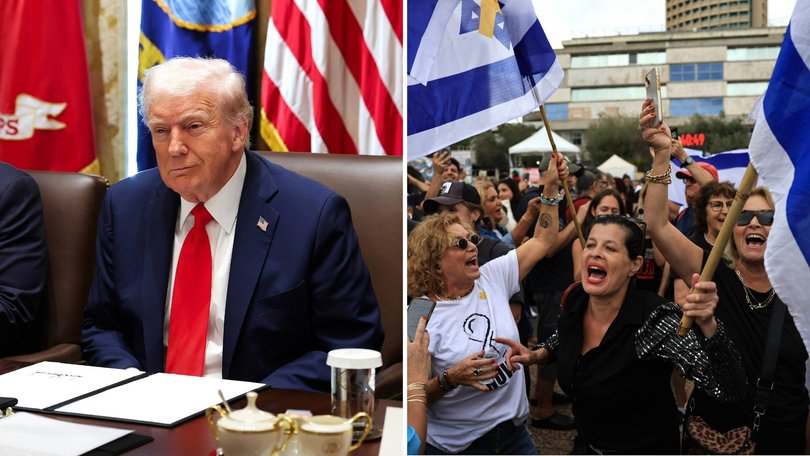EDITORIAL: War may end, but conflict continues to simmer
EDITORIAL: The precarious peace in Gaza has taken enormous effort and strength of will to achieve. Maintaining it will be even harder.

News that Israel and Hamas had finally reached a peace deal triggered an outpouring of human emotion on both sides of the border.
In ruined Gaza, where an estimated 67,000 Palestinians have been killed and 90 per cent of homes destroyed, celebratory gunfire rang out long into the night, while people cried tears of joy and relief at the prospect that this terrible war might soon come to an end.
There were similar scenes in Israel. In Tel Aviv, the families of the remaining hostages gathered, embracing, cheering, some popping bottles of champagne to celebrate the impending return — alive or dead — of their loved ones.
Sign up to The Nightly's newsletters.
Get the first look at the digital newspaper, curated daily stories and breaking headlines delivered to your inbox.
By continuing you agree to our Terms and Privacy Policy.Others without direct connections to the hostages came out also; eager to share in the jubilation.
These were scenes that exposed as a malicious falsehood one of the key allegations levelled against the Israelis — that they are a monolith of bloodthirsty warmongers with no regard for human suffering — other than the Jewish kind.
Hopefully, this peace deal will end this war. But it is unlikely to end the conflict.
Yes, they came to celebrate their nation’s victory over the dark forces that would happily see them all annihilated. But they were also there to celebrate a win for humanity.
They are aware of the catastrophic toll this has taken on their neighbours. No one knows better than the Jews what it is like to be driven by your home by conflict, to lose members of one’s families in a devastating war.
Ordinary Israelis want to live in peace. They don’t want to live in the shadow of a perpetual war, with death and suffering on their doorstep.
They want to live in psychological security, without having to wonder when thousands of militants will next stream over the border, murdering innocents by the hundreds.
It is right that the world is in a state of optimism right now. This ceasefire provides a kernel of hope as good as any that a lasting peace may blossom.
But even the most Pollyanna-ish of us would know that history is against us.
As long as it has felt, this has been just a blip. Barely a page, let alone a chapter, in a conflict which has stretched back millennia. It would be naive in the extreme to think that the path to peace from here will be without roadblocks.
Hopefully, this peace deal will end this war. But it is unlikely to end the conflict.
There remain many, both in Palestine and outside it, who are still committed to the destruction of Israel.
The past two years of bloodshed has likely only strengthened their resolve.
In order to secure the hostages’ return and clinch the ceasefire, Israel has agreed to release 250 terrorists serving life sentences, plus 1700 Gazans detained during the course of the war. No doubt this was a necessary move, but a risky one. Will the next Yahya Sinwar or Ismail Haniyeh be among them?
It highlights the absurdity of those who are now seeking to elbow their way in to claim a share of the credit for a job not yet done. Foreign Minister Penny Wong’s claim that Australia’s move to recognise Palestinian statehood last month contributed to the “international momentum towards peace” falls in that category.
This is a precarious peace that has taken enormous effort and strength of will to achieve. Maintaining it will be even harder.
